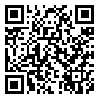1. Kunnari J, Pursiainen J, Muukkonen H. The relationship between secondary education outcomes and academic achievement: a study of Finnish educational sciences students. Journal of Further and Higher Education. 2023;47(9):1155–68. [
DOI]
2. Zhang W, Zhang L, Chen L, Ji L, Deater‐Deckard K. Developmental changes in longitudinal associations between academic achievement and psychopathological symptoms from late childhood to middle adolescence. J Child Psychol Psychiatry. 2019;60(2):178–88. [
DOI]
3. Boffo V, Melacarne C. Employability in adult and higher education. New Directions for Adult and Continuing Education. 2019;2019(163):163–9. [
DOI]
4. Ornaghi V, Conte E, Cavioni V, Farina E, Pepe A. The role of teachers' socio-emotional competence in reducing burnout through increased work engagement. Front Psychol. 2023;14:1295365. [
DOI]
5. Mella N, Pansu P, Batruch A, Bressan M, Bressoux P, Brown G, et al. Socio-emotional competencies and school performance in adolescence: what role for school adjustment? Front Psychol. 2021;12:640661. [
DOI]
6. MacCann C, Jiang Y, Brown LER, Double KS, Bucich M, Minbashian A. Emotional intelligence predicts academic performance: a meta-analysis. Psychol Bull. 2020;146(2):150–86. [
DOI]
7. Ayllón-Salas P, Fernández-Martín FD. The role of social and emotional skills on adolescents' life satisfaction and academic performance. Psychology, Society & Education. 2024;16(1):49–56. [
DOI]
8. Yu X, Wang X, Zheng H, Zhen X, Shao M, Wang H, et al. Academic achievement is more closely associated with student-peer relationships than with student-parent relationships or student-teacher relationships. Front Psychol. 2023;14:1012701. [
DOI]
9. Fredricks JA, Blumenfeld PC, Paris AH. School engagement: potential of the concept, state of the evidence. Rev Educ Res. 2004;74(1):59–109. [
DOI]
10. Tannoubi A, Quansah F, Magouri I, Chalghaf N, Bonsaksen T, Srem-Sai M, et al. Modelling the associations between academic engagement, study process and grit on academic achievement of physical education and sport university students. BMC Psychol. 2023;11(1):418. [
DOI]
11. Meng Q, Zhang Q. The influence of academic self-efficacy on university students' academic performance: the mediating effect of academic engagement. Sustainability. 2023;15(7):5767. [
DOI]
12. Najafi H. The relationship between modern education (electronic and blended), academic engagement and academic well-being with academic performance. Positive Psychology Research. 2023;9(1):87–106. [Persian] [
Article]
13. Lee JS. The relationship between student engagement and academic performance: is it a myth or reality? J Educ Res. 2014;107(3):177–85. [
DOI]
14. Abid N, Akhtar M. Relationship between academic engagement and academic achievement: an empirical evidence of secondary school students. J Educ Res. 2020;23(1):2020.
15. Shernoff DJ, Schmidt JA. Further evidence of an engagement–achievement paradox among U.S. high school students. J Youth Adolesc. 2008;37(5):564–80. [
DOI]
16. Baker RW, Siryk B. Student adaptation to college questionnaire manual. Los Angeles: Western Psychological Services; 1989.
17. Van Rooij ECM, Jansen EPWA, Van De Grift WJCM. Secondary school students' engagement profiles and their relationship with academic adjustment and achievement in university. Learn Individ Differ. 2017;54:9–19. [
DOI]
18. Van Rooij ECM, Jansen EPWA, Van De Grift WJCM. First-year university students' academic success: the importance of academic adjustment. Eur J Psychol Educ. 2018;33(4):749–67. [
DOI]
19. Jafari Z, Abdizarin S. Prediction of academic adjustment based on academic identity, academic buoyancy and school engagement among students. Journal of Educational Psychology Studies. 2022;18(44):103–22. [Persian] [
Article]
20. Skinner EA, Pitzer JR, Steele JS. Can student engagement serve as a motivational resource for academic coping, persistence, and learning during late elementary and early middle school? Dev Psychol. 2016;52(12):2099–117. [
DOI]
21. Ullah R. Boys versus girls' educational performance: empirical evidences from global north and global south. African Educational Research Journal. 2019;7(4):163–7. [
DOI]
22. Kline RB. The mediation myth. Basic Appl Soc Psych 2015;37(4):202–13. [
DOI]
23. Reeve J. How students create motivationally supportive learning environments for themselves: The concept of agentic engagement. J Educ Psychol. 2013;105(3):579–95. [
DOI]
24. Ramazani M, Khamesan A. Psychometric characteristics of Reeve's Academic Engagement Questionnaire 2013: with the introduction of the agentic engagement. Quarterly of Educational Measurement. 2017;8(29):185–204. [Persian] [
Article]
25. Zhou M, Ee J. Development and validation of the Social Emotional Competence Questionnaire. The International Journal of Emotional Education. 2012;4(2):27–42.
26. Imamgholivand F, Kadivar P, Pasha Sharifi H. Psychometric indexes students' of the Social Emotional Competence Questionnaire (SECQ). Quarterly of Educational Measurement. 2018;9(33):79–101. [Persian] [
Article]
27. Sinha AKP, Singh RP. The Adjustment Inventory for School Students (AISS). Agra. National Psychological Corporation; 1993
28. Aghazhor Hasiri F. Psychometric characteristics of Compatibility Questionnaire and its relationship with emotional intelligence of female teachers in Babol city [Thesis for MSc]. [Tehran, Iran]: Faculty of Educational Sciences and Psychology, Islamic Azad University, Central Tehran Branch; 2014. [Persian]
29. Schumacker RE, Lomax RG. A beginner's guide to structural equation modeling. New York, Routledge; 2012.





